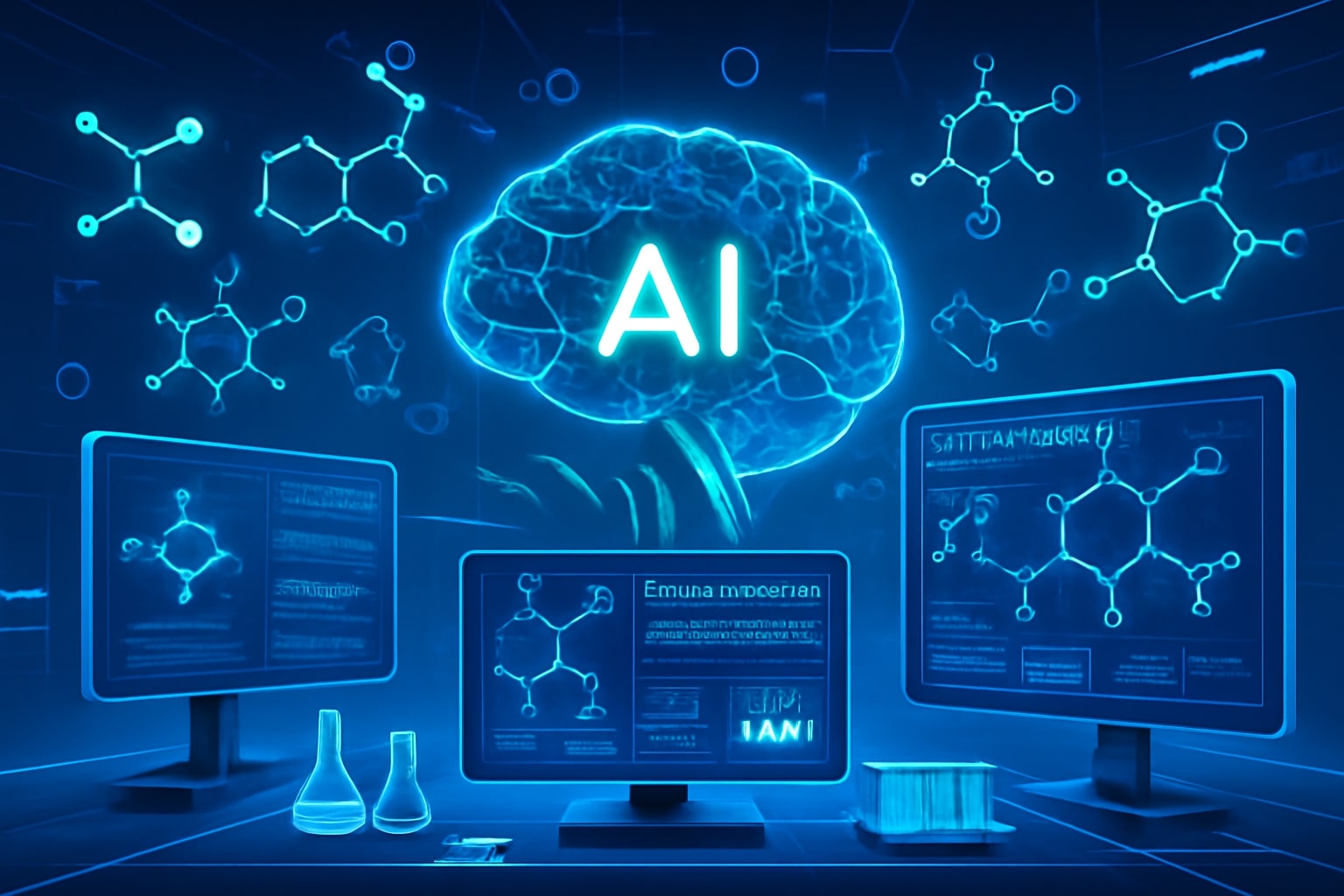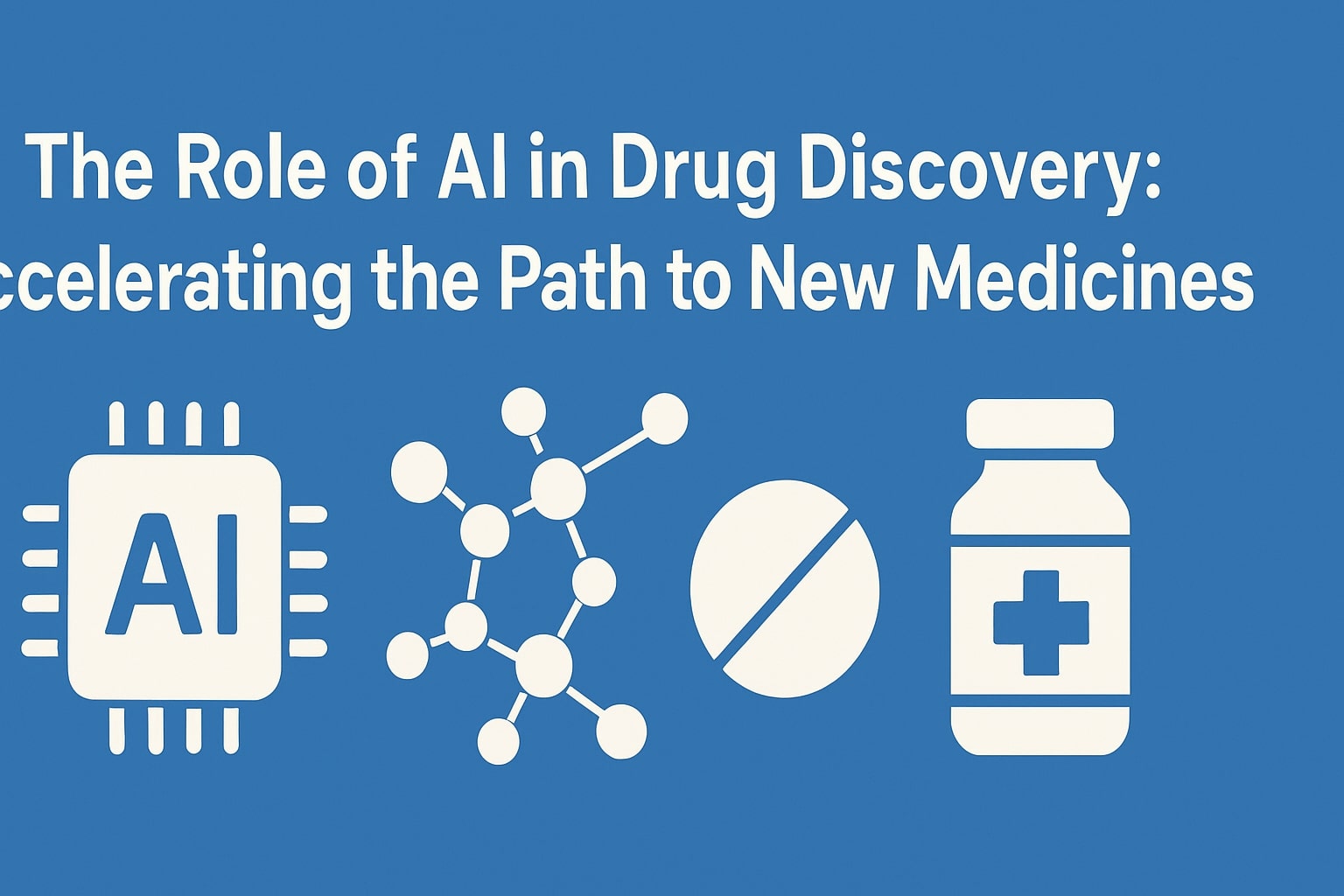Artificial Intelligence (AI) in drug discovery is transforming the way new medicines are developed. Traditionally, it was a slow, expensive process with a high failure rate. Today, AI can accelerate research, reduce costs, and improve success rates, bringing effective treatments to patients much faster. Learn more about AI applications in healthcare and digital health innovations.
The Traditional Drug Discovery Bottleneck
Previously, scientists manually tested thousands of potential compounds, relying on trial-and-error experiments in cells and animals. Finding a successful candidate was like searching for a needle in a haystack. AI in drug discovery changes that paradigm by using predictive modeling and data analysis to identify promising targets much faster. For more details, check our related post on AI in personalized medicine.
How AI in Drug Discovery is Revolutionizing the Process
1. Target Identification with AI
The Problem: Selecting the right biological target, such as a protein involved in a disease, is critical for drug success.
AI’s Role: Algorithms analyze genomic, proteomic, and medical data to discover disease targets, understand mechanisms, and predict which ones are most “druggable.” This allows researchers to focus on the most promising paths. For further reading, see Nature’s article on AI in biomedical research.
2. Compound Screening and AI-Driven Design
The Problem: Screening millions of chemical compounds manually is time-consuming and costly.
AI’s Role:
- Virtual Screening: Predicts how molecules interact with targets, prioritizing only the best for lab testing.
- Generative AI: Designs new molecules with desired properties such as high efficacy, low toxicity, and easier synthesis.
3. Predicting Efficacy and Side Effects
The Problem: Many drugs fail in late-stage trials due to limited efficacy or unexpected side effects.
AI’s Role: By analyzing biological data and databases of known drug effects, AI predicts both efficacy and possible adverse reactions. This helps select safer, more effective candidates. Learn more about AI in clinical pharmacology.
4. Optimizing Clinical Trials
The Problem: Clinical trial design and recruitment are slow, costly, and often inefficient.
AI’s Role: By analyzing patient records, AI identifies suitable candidates and suggests trial designs that reduce delays. This improves both recruitment and success rates. Explore more in our related post on AI in clinical trials.
Real-World Impact of AI in Drug Discovery
The COVID-19 pandemic highlighted AI’s potential across medicine. For instance, Moderna used AI to design mRNA vaccines and optimize spike protein sequences, accelerating development. Similarly, Insilico Medicine created AI-driven candidates for cancer and fibrosis, taking them into clinical trials much faster than traditional methods. Learn more at Science Magazine’s AI research coverage.
AI is also widely applied in personalized medicine, enabling treatments tailored to specific genetic and health profiles.
Challenges and the Future of AI Drug Development
Despite the promise, challenges remain:
- Data Quality: AI systems need large, clean, and well-labeled datasets.
- Validation: AI-designed drugs must still undergo rigorous clinical trials.
- Regulation: Agencies like the FDA and EMA are still developing frameworks to evaluate AI-driven drugs.
Overall, AI is shifting drug discovery from trial-and-error to intelligent design. This makes research faster, cheaper, and more targeted, offering hope for patients with Alzheimer’s, rare cancers, and other complex diseases. For broader insights, explore our guide on AI in healthcare trends.

